Home> Company News> What is a Pressure Compensator?
- AddressTianqiao, Beiyuan District, Jinan,Shandong
- Worktime9:00-18:00(Beijing time)
- Phone(Working Time)0531-8299 9953
Hydraulic systems rely on pressure compensators to maintain consistent pressure and flow rates, ensuring the efficient and reliable operation of the system. In this guide, we will provide an overview of pressure compensators in hydraulic systems, including their definition, purpose, types, advantages, and common applications. Whether you are a hydraulic system designer, engineer, or operator, this guide will help you understand the importance of pressure compensators in hydraulic systems and how to select and use them effectively.
Understanding Pressure Compensators
Hydraulic pressure compensators are an essential component of hydraulic systems that regulate pressure levels, ensuring smooth and efficient system performance. A pressure compensator adjusts the flow rate of a hydraulic system based on changes in pressure, maintaining consistent pressure levels and preventing damage to the system.
Pressure compensators come in various types, including fixed, variable, and load-sensing valves. Fixed pressure compensators are set at a specific pressure range and maintain a constant flow rate, making them suitable for simple hydraulic systems. Variable pressure compensators, on the other hand, allow for flow rate adjustments, providing greater flexibility and control over system performance. Load-sensing valves are designed to adjust the system's flow rate based on the load, making them ideal for applications that require varying pressure levels.
All pressure compensators work by adjusting the flow rate based on changes in pressure, but they may do so differently. For example, a fixed pressure compensator uses a spring-loaded valve to maintain a set pressure level, while a variable pressure compensator may use a proportional valve that responds to changes in pressure by adjusting the flow rate. The type of pressure compensator used in a hydraulic system will depend on the system's requirements and the application's specific needs.
There are several advantages to using a pressure compensator in a hydraulic system. One of the main benefits is increased efficiency and accuracy in system performance. By maintaining consistent pressure levels, the system can operate at optimal levels, reducing energy consumption and minimizing wear and tear on system components. Additionally, pressure compensators can improve safety and performance by preventing overloading and system failures.
However, there are also some disadvantages to using a pressure compensator. For example, fixed pressure compensators are limited in their flexibility and may not be suitable for more complex hydraulic systems. Variable pressure compensators can be more expensive and require more maintenance than fixed pressure compensators.
Overall, the type of pressure compensator used in a hydraulic system will depend on the specific requirements of the application. It is important to consider factors such as operating pressure and flow rate requirements, type of hydraulic system and components, environmental factors, and budget and maintenance considerations when selecting a pressure compensator.
Benefits of Using a Pressure Compensator
Pressure compensators are essential components in hydraulic systems that help to maintain a consistent pressure level by regulating the flow rate of hydraulic fluid. By doing so, pressure compensators help to prevent system failure, equipment damage, and operator injury. Understanding the benefits of using a pressure compensator in hydraulic systems is crucial for ensuring optimal system performance.
Increased efficiency and accuracy in hydraulic systems: Pressure compensators allow for more precise control of system pressure, which helps to reduce energy consumption and improve overall system efficiency. Additionally, pressure compensators help to maintain a consistent pressure level, which reduces the risk of system failure and downtime.
Reduced wear and tear on equipment: When hydraulic systems operate at excessively high pressures, it can cause increased wear and tear on system components, leading to premature failure and increased maintenance costs. Pressure compensators help to maintain a consistent pressure level, which reduces the risk of damage to system components and extends their lifespan.
Improved safety and performance in hydraulic systems: Pressure compensators play a critical role in ensuring the safe and reliable operation of hydraulic systems. By maintaining a consistent pressure level, pressure compensators help to prevent system failure and operator injury, improving overall system safety and performance.
Overall, the use of pressure compensators in hydraulic systems provides numerous benefits, including increased efficiency and accuracy, reduced wear and tear on equipment, and improved safety and performance. Understanding these benefits is crucial for ensuring optimal system performance and reliability.
Common Applications of Pressure Compensators
Pressure compensators are used in a wide range of hydraulic systems and machinery, including industrial and manufacturing equipment, agricultural machinery, construction and excavation machinery, and automotive and transportation equipment.
Industrial and manufacturing equipment often rely on pressure compensators to ensure consistent and precise operation. For example, hydraulic presses and stamping machines require precise pressure control to produce accurate and high-quality products.
In agricultural machinery and equipment, pressure compensators are used to improve efficiency and reduce wear and tear on equipment. Irrigation systems, for instance, rely on pressure compensators to regulate water flow and maintain consistent pressure for optimal crop growth.
Construction and excavation machinery also often use pressure compensators to ensure safe and reliable operation. Hydraulic cranes, excavators, and backhoes require precise pressure control to lift and move heavy loads safely and efficiently.
In the automotive and transportation industry, pressure compensators are used in a variety of applications, from steering and suspension systems to brakes and clutches. In these systems, pressure compensators help to ensure precise and reliable operation for enhanced safety and performance.
Overall, pressure compensators play a critical role in a wide range of hydraulic systems and machinery, providing accurate pressure control and ensuring safe and efficient operation.
Factors to Consider When Selecting a Pressure Compensator
When selecting a pressure compensator for your hydraulic system, there are several factors that you need to consider to ensure that the compensator will work effectively and efficiently. Here are some of the key factors to keep in mind:
-
Operating Pressure and Flow Rate Requirements: One of the most critical factors to consider is the required operating pressure and flow rate of your hydraulic system. Make sure that the pressure compensator you select can handle the maximum pressure and flow rate required by your system.
-
Type of Hydraulic System and Components: The type of hydraulic system and components used in your system will also affect your choice of pressure compensator. Different types of hydraulic systems may require different types of compensators, and different components within a system may have different requirements as well.
-
Environmental Factors and Operating Conditions: Environmental factors such as temperature, humidity, and dust can all affect the performance of your pressure compensator. Make sure to choose a compensator that is suitable for the specific environmental conditions in which your hydraulic system will be operating.
-
Budget and Maintenance Considerations: The cost of a pressure compensator can vary significantly depending on its features and capabilities. Consider your budget carefully when selecting a compensator, but also keep in mind the cost of ongoing maintenance and replacement parts over the life of the system.
By carefully considering these factors, you can select the right pressure compensator for your hydraulic system, ensuring optimal performance and efficiency.
Installation and Maintenance of Pressure Compensators
Proper installation and maintenance of pressure compensators are crucial for their optimal performance and longevity in hydraulic systems.
Installation of Pressure Compensators
The first step in installing a pressure compensator is to select the appropriate compensator for the hydraulic system. It is essential to consider the system's operating pressure and flow rate requirements, the type of hydraulic system and components, and the environmental factors and operating conditions. The compensator's installation location should also be considered to ensure easy accessibility for inspection and maintenance.
After selecting the appropriate compensator, the installation process should follow the manufacturer's recommendations and instructions. The installation process typically involves the following steps:
-
Mounting the compensator: The compensator should be mounted securely and correctly in the system, considering the direction of fluid flow.
-
Connecting the compensator: The compensator should be connected to the hydraulic system using the recommended fittings and hoses.
-
Adjusting the compensator: The compensator should be adjusted according to the manufacturer's recommended settings, ensuring the proper pressure compensation range for the system.
-
Testing the compensator: After installation, the compensator should be tested to ensure it is working correctly and within the desired pressure compensation range.
Maintenance of Pressure Compensators
Routine maintenance and inspection of pressure compensators are necessary to ensure their optimal performance and longevity in hydraulic systems. The following are some recommended maintenance tasks:
-
Regular inspection: Pressure compensators should be inspected regularly for signs of wear, leaks, and damage.
-
Cleaning: The compensator should be cleaned regularly to remove any debris or contaminants that may affect its performance.
-
Calibration: The compensator should be calibrated periodically to ensure it is operating within the desired pressure compensation range.
-
Replacement of worn-out parts: Any worn-out or damaged parts should be replaced promptly to avoid further damage to the system.
-
Troubleshooting: Any issues or problems with the compensator should be addressed promptly to avoid equipment damage or system failure.
Troubleshooting Pressure Compensator Issues
If a pressure compensator is not working correctly, it may cause problems in the hydraulic system, such as slow or erratic operation, system overheating, or damage to system components. The following are some common pressure compensator issues and their potential causes:
-
Pressure compensator fails to maintain desired pressure range: This issue may be caused by worn-out parts, incorrect adjustment, or a damaged compensator.
-
Pressure compensator leaks: This issue may be caused by damaged seals, worn-out parts, or incorrect installation.
-
Pressure compensator is noisy: This issue may be caused by a damaged compensator or incorrect installation.
If any of these issues are encountered, it is recommended to consult the manufacturer's manual or a qualified technician for proper troubleshooting and repair procedures.
Conclusion
In conclusion, pressure compensators play a vital role in hydraulic systems, regulating pressure to prevent damage and improve system efficiency. Understanding the different types of pressure compensators available and their benefits and drawbacks is important when selecting the right one for a given application. Considerations such as operating pressure and flow rate, environmental factors, and maintenance requirements should also be taken into account. Proper installation and maintenance of pressure compensators can help prevent common issues and prolong their lifespan. By selecting and using pressure compensators correctly, hydraulic systems can operate more efficiently, safely, and reliably.


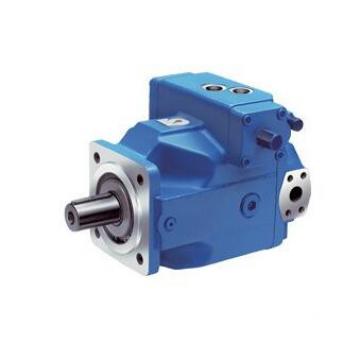 USA VICKERS Pump PVH131R13AF30B252000002001AB010A
USA VICKERS Pump PVH131R13AF30B252000002001AB010A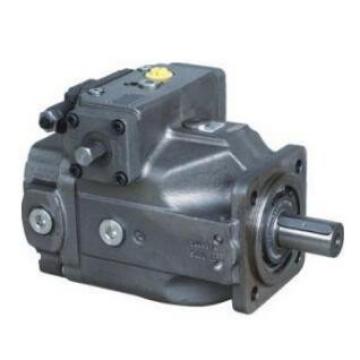 Parker Piston Pump 400481002108 PV140R1K1B4NWLZ+PGP517A0
Parker Piston Pump 400481002108 PV140R1K1B4NWLZ+PGP517A0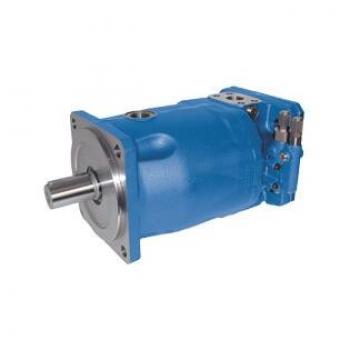 Parker Piston Pump 400481003286 PV180R1K1A4NYCD+PGP511A0
Parker Piston Pump 400481003286 PV180R1K1A4NYCD+PGP511A0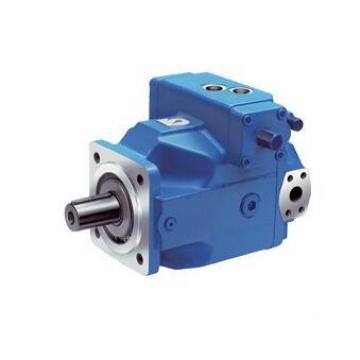 USA VICKERS Pump PVH057R02AA10B25200000100100010A
USA VICKERS Pump PVH057R02AA10B25200000100100010A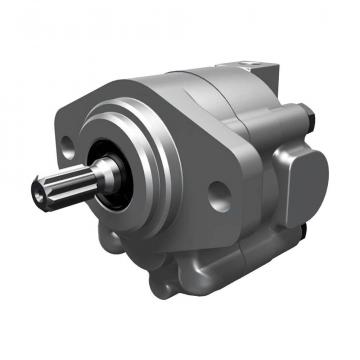 Parker Piston Pump 400481004166 PV270R9K1B4NYLZK0033+PVA
Parker Piston Pump 400481004166 PV270R9K1B4NYLZK0033+PVA